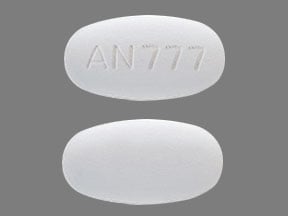
Linezolid Coupons & Savings Card – Discount Prices from $34.52
Generic for: Zyvox
Linezolid is an antibiotic used to treat certain serious bacterial infections. It works by stopping the growth of bacteria. This antibiotic treats only bacterial infections. It will not work for viral infections (such as common cold, flu). Using any antibiotic when it is not needed can cause it to not work for future infections. Linezolid also belongs to a class of drugs known as MAO inhibitors. It can increase the levels of certain natural substances in the body (such as dopamine, norepinephrine, serotonin) which can increase the chance of certain side effects and food and drug interactions. See How to Use, Side Effects, and Drug Interactions sections for more details.
Our coupons are free to use. Before paying, show the pharmacist your Linezolid savings card to get your free discount. Use our filters below to edit the prescription box to match your needs. The Linezolid prices will update based on your prescription needs. Above our Linezolid coupons, you can change your location to see pharmacy prices and costs in other areas. We're here to help you buy Linezolid at the lowest price with our prescription discount card.
My prescription
Edit
600MG, Linezolid (20 Tablets)
Select pharmacy

CVS
$34.52
COUPON PRICE
Walgreens
$39.40
COUPON PRICE
Walmart
$41.52
COUPON PRICE
Albertsons
$44.70
COUPON PRICELinezolid savings card
Show this card to your pharmacist
CVS
$34.52
BIN
ID
PCN
GRP
019876
LH037E16CB
CHIPPO
LHX
Powered by
Linezolid is an antibiotic used to treat certain serious bacterial infections. It works by stopping the growth of bacteria. This antibiotic treats only bacterial infections. It will not work for viral infections (such as common cold, flu). Using any antibiotic when it is not needed can cause it to not work for future infections. Linezolid also belongs to a class of drugs known as MAO inhibitors. It can increase the levels of certain natural substances in the body (such as dopamine, norepinephrine, serotonin) which can increase the chance of certain side effects and food and drug interactions. See How to Use, Side Effects, and Drug Interactions sections for more details.
Our coupons are free to use. Before paying, show the pharmacist your Linezolid savings card to get your free discount. Use our filters below to edit the prescription box to match your needs. The Linezolid prices will update based on your prescription needs. Above our Linezolid coupons, you can change your location to see pharmacy prices and costs in other areas. We're here to help you buy Linezolid at the lowest price with our prescription discount card.
